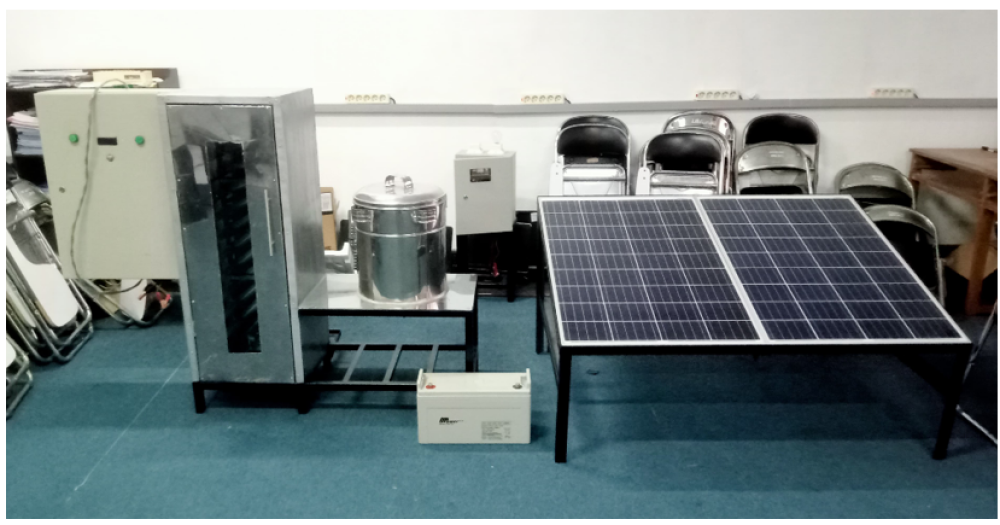
In the traditional processing of coconut into copra by farmers, coconut water is still considered waste so it is simply thrown away. This coconut water can actually be processed into a product that has economic value. This coconut water can be processed into nata de coco. Processing coconut water waste into nata de coco can be an alternative added value for coconut farmers' income because nata de coco has economic value.
This study aims to overcome the challenges of coconut water waste processing by developing an integrated biotechnology tool for Solar Power Plants (PLTS) that is effective and efficient to produce nata de coco. The background of the study reflects the difficulties in managing coconut water waste and the less than optimal potential of PLTS in this context. The research method used is the Research and Development (R&D) approach, this study focuses on the design, implementation, and evaluation of tools, with the main goal of increasing the efficiency of waste processing and optimizing the use of solar energy. The output of the research is expected to be a prototype of an effective and efficient biotechnology tool, opening up opportunities for industry and society to adopt sustainable technology in nata de coco production, reducing environmental impacts, and maximizing the use of renewable energy sources.
The advantage of the tool to be made lies in the model that specifically follows the condition of coconut water capacity. This biotechnology tool model has also been integrated with the PLTS system to utilize solar energy which is generally available in tropical areas.

